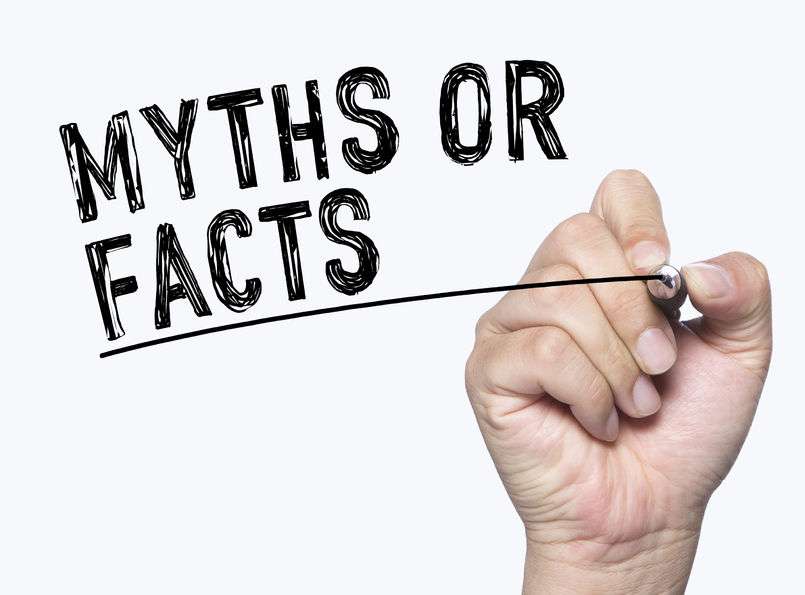Having watched families fight over the estate and end up not speaking to each other for the rest of their lives, I can tell you first hand that leaving this world without making a plan for what’s in your estate is one of the worst thing you could do for your loved ones.
Over the Thanksgiving weekend, the CBC led their business section with an article on writing a Canadian Last Will and Testament and suggested that you should discuss with your children exactly how you were planning to divide your estate.

Copyright: kchung / 123RF Stock Photo
There were some great comments on the article from people who were living the nightmare of administering an estate, some estates had a Will involved and some didn’t. Problems arose with children fighting over particular bequests, Executors were not following the legal procedures, aged parents were being forced to change their Wills in the advanced years. What struck me though was the level of misunderstanding of estate planning law from the general public. In a total of 200 comments, I have picked out 10 terrible misconceptions that people have taken the time to submit in response to the article. The lesson here is do not take legal advice from a comment forum.
1. “Modern Wills cover physical/health issues as well as financial ones”
This is absolutely not true. A Canadian Last Will and Testament comes into effect only at the moment you die. It serves absolutely no purpose while you are alive, so while it could potentially include instructions for your burial and funeral, it absolutely cannot include healthcare instructions. We actually do not recommend that you include funeral wishes in your Last Will and Testament, and they are technically not legally binding. We offer an entirely separate service for documenting your funeral wishes, and the document can be stored with your Will. For any healthcare instructions, you need a Healthcare Power of Attorney or “Living Will“. The first of these allows you to name a person to make healthcare decisions on your behalf while you are alive but unable to express your own desires for healthcare. The Living Will allows you to pro-actively make some of these healthcare decisions.
2. “Without a will the government would seize all the possessions”
Although we encourage everybody to write their Will, it is wrong to suggest that the government will take all of your possessions if you do not have one. Assets are frozen, that much is true, but the estate is then distributed according the intestate laws of the Province. Only in very unusual circumstances when there are no immediate or extended family members surviving, would the estate go to the government. The process is certainly much easier with a Will, but it is unlikely that the government will take all of your possessions if you do not have a Last Will and Testament in place.
3. “A useful iPhone/ipad/Android app to designate beneficiaries of family heirlooms is xxxx”
Currently in Canada, the only way to designate a beneficiary for anything is by using a printed, signed and witnessed Last Will and Testament. Any online service, or mobile app that claims to allow you to name a beneficiary for an asset or possession is misleading you. Likewise, verbal promises mean absolutely nothing in law. The fuzzy promises made in person, or through an online service or mobile app are a frequent cause of friction between family members. You must describe the distribution of your estate in a legal Canadian Last Will and Testament; printed, signed and witnessed.
4. “I have never bothered with a will because I really don’t give a damn.”
Writing a Canadian Last Will and Testament is not about you, it is a simple courtesy for your loved ones that you leave behind. They may be upset by your passing, and significant assets may be involved. Only the most belligerent would deliberately devise a way to tear apart a family, but dying without a Will is doing exactly that. The process takes less than 30 minutes and saves months or years of pain for the family that you leave behind. It also ensures that most of the estate stays with the family and is not swallowed up by legal fees as different sides of the family battle each other in a courtroom.
5. “My advice? Give it all away PRE-mortem to avoid lengthy probate time.”
This is rather impractical advice because nobody really knows when they are going to die. If everybody knew for sure that they will live until they are 85 years old, then planning would be easy, but it is actually very difficult to spend all of your money while you are alive and still have money to live on. It’s a very poor approach compared to just writing a Will.
6. “Writing your will on a napkin is not legal unless it is stamped by a Notary”
For some reason discussions on Wills always devolve into the legal requirements for a Will and how you can just write a Will on a napkin. It is actually true in most Provinces that an entirely handwritten “Will” on the back of a napkin would suffice as a Last Will and Testament, but it’s an academic discussion because it makes absolutely no sense to do this unless you were pinned under a rock somewhere with hours to live (and even then, your state of mind could be challenged). You cannot write a well drafted Canadian Last Will and Testament starting with a blank piece of paper. A proper Will needs to have alternate plans, residual beneficiaries, trusts, guardians and powers to the Executor that cannot be drafted by a layperson. The comment that a will written on a napkin must be stamped by a Notary is incorrect, but don’t take this to mean that using a napkin, or even a do-it-yourself blank form kit is an appropriate way to write your Last Will and Testament.
7. “Anything written anywhere as a wish upon dying is considered a will unless superceded by a legal document.”
Again, this is a discussion about the minimum requirements required of a document to be considered a Canadian Last Will and Testament, but this comment seems to have mangled the very special legal requirements of a Will written by a member of Canadian Forces while on active duty. Written into most Provincial laws there is a special category of Wills that need not be witnessed if written by an active military service member. It doesn’t apply to the general public, and it is absolutely incorrect that anything you write “upon dying” is considered a Will. A Will must be printed, signed and witnessed while you have the mental competence to know what you are doing. Do not wait until you are about to die, and to suggest that this can be used as an estate planning strategy is laughable.
8. “Don’t let your children know they have Power of Attorney if you have chosen that in your will.”
You cannot include a Power of Attorney in a Canadian Last Will and Testament. The Power of Attorney is a document that is active while you are alive but unable to make decisions for yourself. The Financial Power of Attorney or Healthcare Power of Attorney are immediately cancelled at the moment you die, at which point your Will becomes active. Your Will is an inactive document all the time you are alive, so appointing a Power of Attorney in your Will is not possible. As an aside, some comments suggested that if you grant somebody powers through a financial Power of Attorney the person can prepare a new Last Will and Testament for you. This is not possible.
9. “In Quebec the civil code has provisions for exactly what happens in case you didn’t do your estate planning. Maybe other provinces should follow that model.”
Actually, every Province has a law of intestate succession (how everything will be divided if you do not have a Will) it is not unique to Quebec. However, this is an extremely poor approach to estate planning because the intestate laws will almost certainly not match how you would choose to distribute your estate. Many people have the misconception that the spouse just receives everything, when in fact this only happens in Alberta, Manitoba. It is never a good idea to leave the plans for distributing your estate to the laws of intestate succession.
10. “The fee you pay a lawyer usually includes safekeeping of a valid copy, and usually there is an index or a process that your heirs can use to find out which lawyer or successor law firm has the will.”
Many lawyers do offer to store your Will, but there is absolutely no index or process that heirs can use to find out which lawyer has the Will. One of the most common questions that we receive at LegalWills.ca is “My father created his Will when he was living in BC, and I think the lawyer has a copy, but I don’t know if the law firm still exists or which law firm he used, how can I find the Will”. We are not aware of any process that makes this task any easier (the government of BC allows you to register the location of your Will, but a tiny percentage of Wills are registered this way). In our opinion, the most effective solution to this issue is to give your Executor your Will in a sealed envelope for safe keeping.
- Probate in Canada – What it is, what it costs, how to reduce fees. - January 6, 2025
- All about Trusts – how to include a Trust in your Will - June 9, 2022
- The Holographic Will – what is it and when should you use one? - May 18, 2022













